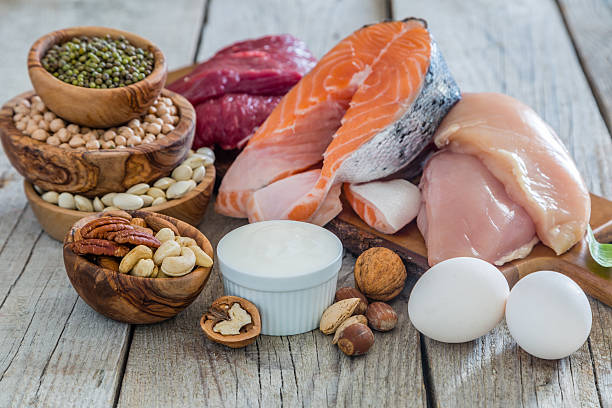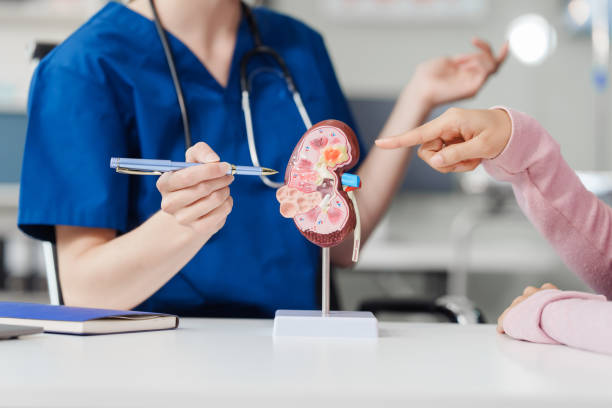Maintaining kidney health is closely linked to managing blood creatinine levels. When creatinine levels rise, it often signals reduced kidney function and the need for dietary adjustments especially protein intake. This detailed, SEO-optimized guide explains protein intake guidelines for high creatinine patients, including causes, symptoms, recommended protein limits, food choices, and practical dietary tips.
What Is Creatinine and Why Is It Important for Kidney Health?
Creatinine is a waste product formed when muscles use energy. It is released into the bloodstream and filtered out by the kidneys through urine. Healthy kidneys efficiently remove creatinine, keeping blood levels within a normal range.
- What Is Creatinine and Why Is It Important for Kidney Health?
- Normal vs High Creatinine Levels
- Reasons for Increased Creatinine Levels
- Symptoms of Dangerous Creatinine Levels
- Why Protein Intake Matters for High Creatinine Patients
- Recommended Protein Intake Guidelines for High Creatinine Patients
- Best Protein Sources for High Creatinine Patients
- Low-Protein Diet Tips for Kidney Patients
- Other Nutrients to Watch with High Creatinine
- Sample Daily Diet Approach for High Creatinine Patients
- Conclusion:
- FAQs:
- Q. Can high protein intake increase creatinine levels?
- Q. Is protein completely banned for high creatinine patients?
- Q. Are plant proteins better for high creatinine?
- Q. How much protein should a high-creatinine patient consume daily?
- Q. Does drinking more water reduce creatinine?
- Q. Should dialysis patients follow the same protein intake guidelines?
When kidney function declines, creatinine accumulates in the blood. Persistently high creatinine levels can indicate chronic kidney disease (CKD) or other kidney-related disorders and may eventually lead to serious complications if not managed properly.
Normal vs High Creatinine Levels
Creatinine levels vary depending on age, muscle mass, and gender.
Normal creatinine levels
Men: ~0.7–1.3 mg/dL
Women: ~0.6–1.1 mg/dL
High creatinine levels
Above 1.3 mg/dL in men
Above 1.1 mg/dL in women
Levels above these ranges may require dietary intervention, medication, or advanced treatments such as dialysis, depending on severity.
Reasons for Increased Creatinine Levels
Understanding why creatinine rises is key to managing it effectively.
1. Muscle Activity and Exercise
Creatinine is produced by muscles. Intense physical activity or heavy exercise can temporarily increase creatinine levels.
2. High Protein Intake
Eating excessive amounts of protein—especially red meat and animal protein—can raise creatinine levels and burden the kidneys.
3. Supplements and Medications
Creatine supplements, certain painkillers, antibiotics, and blood pressure medications may increase creatinine levels.
4. Kidney Diseases
Conditions like acute kidney injury (AKI) and chronic kidney disease (CKD) reduce the kidneys’ ability to filter creatinine.
5. Dehydration
Insufficient fluid intake concentrates creatinine in the blood, falsely elevating levels.
Symptoms of Dangerous Creatinine Levels
High creatinine levels may present with noticeable symptoms, including:
- Constant tiredness and weakness
- Changes in urination (too little or too much)
- Loss of appetite
- Metallic or bad taste in the mouth
- Nausea and vomiting
- Muscle cramps or twitching
- Swelling in feet or ankles
If these symptoms persist, a medical evaluation is essential.
Why Protein Intake Matters for High Creatinine Patients
Protein is vital for muscle repair, immunity, and overall health. However, when protein is metabolized, it produces waste products such as urea and creatinine, which must be removed by the kidneys.
For people with impaired kidney function, excessive protein intake:
Increases creatinine and urea levels
Raises intraglomerular pressure in the kidneys
Accelerates kidney damage in CKD patients
Therefore, following protein intake guidelines for high creatinine patients is critical.
Recommended Protein Intake Guidelines for High Creatinine Patients
Protein needs vary depending on kidney function, body weight, and disease stage. Always follow medical advice, but general guidelines include:
1. Mild to Moderate Kidney Disease
Protein intake: 0.6–0.8 g per kg of body weight per day
2. Advanced Kidney Disease (Non-Dialysis)
Protein intake: 0.4–0.6 g per kg of body weight per day
In some severe cases, total protein may be limited to 20–25 g per day
3. Dialysis Patients
Protein needs may increase due to protein loss during dialysis
Intake is individualized and supervised by a renal dietitian
Important: Never reduce protein drastically without professional guidance.
Best Protein Sources for High Creatinine Patients
Plant-Based Proteins (Preferred)
Plant proteins are easier on the kidneys and produce fewer waste products.
Tofu and soy products
Lentils and beans (in controlled portions)
Chickpeas
Quinoa
Animal Proteins (Limited Portions)
Animal proteins are higher in creatinine-producing compounds.
Egg whites
Skinless chicken
Fish (low-phosphorus varieties)
Red meat and processed meats should be avoided or consumed very rarely.
Low-Protein Diet Tips for Kidney Patients
Spread protein intake evenly throughout the day
Avoid protein powders and bodybuilding supplements
Choose cooking methods like boiling or steaming
Combine protein with low-potassium vegetables
Track daily protein intake carefully
Other Nutrients to Watch with High Creatinine
1. Phosphorus
Excess phosphorus stresses the kidneys.
Limit dairy, processed foods, cola drinks, and red meat
2. Potassium
High potassium can affect heart rhythm.
Monitor bananas, oranges, potatoes, tomatoes, and spinach
3. Sodium
Too much salt worsens blood pressure and kidney damage.
Avoid packaged and salty foods
4. Fluids
Drink water as advised by your healthcare provider—neither excessive nor insufficient.
Sample Daily Diet Approach for High Creatinine Patients
- Breakfast: Low-protein bread, egg white, apple
- Lunch: Rice, sautéed vegetables, small portion of tofu
- Snack: Unsalted crackers, herbal tea
- Dinner: Boiled vegetables, a small serving of fish or lentils
Diet plans should always be personalized.
Conclusion:
Following protein intake guidelines for high creatinine patients is one of the most effective ways to protect kidney health and slow disease progression. A controlled, low-protein diet—combined with careful management of phosphorus, potassium, sodium, and fluids—can significantly reduce kidney stress.
Always consult a nephrologist or renal dietitian before making major dietary changes. Personalized guidance ensures nutritional needs are met without compromising kidney function.
FAQs:
Q. Can high protein intake increase creatinine levels?
A. Yes. Excessive protein intake increases metabolic waste like urea and creatinine, putting extra pressure on the kidneys.
Q. Is protein completely banned for high creatinine patients?
A. No. Protein is essential, but intake must be limited and carefully controlled according to kidney function.
Q. Are plant proteins better for high creatinine?
A. Yes. Plant-based proteins generally produce fewer waste products and are easier on the kidneys.
Q. How much protein should a high-creatinine patient consume daily?
A. Depending on disease severity, intake may range from 0.4-0.8 g per kg of body weight, or around 20–25 g per day in severe cases.
Q. Does drinking more water reduce creatinine?
A. Proper hydration can help maintain normal creatinine levels, but excessive water intake is not recommended for all kidney patients.
Q. Should dialysis patients follow the same protein intake guidelines?
A. No. Dialysis patients often require higher protein intake under medical supervision.



